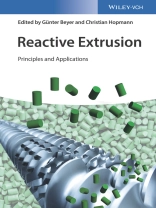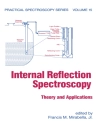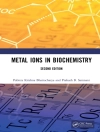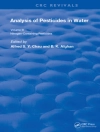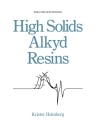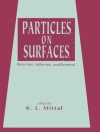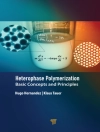This first comprehensive overview of reactive extrusion technology for over a decade combines the views of contributors from both academia and industry who share their experiences and highlight possible applications and markets. They also provide updated information on the underlying chemical and physical concepts, summarizing recent developments in terms of the material and machinery used.
As a result, readers will find here a compilation of potential applications for reactive extrusion to access new and cost-effective polymeric materials, while using existing compounding machines.
Mục lục
1. Introduction to reactive extrusion
2. The co-rotating twin screw extruder for reactive extrusion
3. Modelling of twin screw reactive extrusion: challenges and applications
4. Measurement and Modeling of Local Residence Time Distributions in a Twin Screw Extruder
5. In-process measurements for reactive extrusion monitoring and control
6. Exchange Reaction Mechanisms in the Reactive Extrusion of Condensation Polymers
7. In situ synthesis of inorganic and/or organic phases in thermoplastic polymers by reactive extrusion
8. Concept of (reactive) compatibilizer-tracer for emulsification curve build-up, compatibilizer selection and process optimization of immiscible (reactive) polymer blends
9. Nano-structuring of polymer blends by
an in-situ polymerization and in-situ compatibilization processes
10. Reactive Comb Compatibilizers for Immiscible Polymer Blends
11. Reactive compounding of highly filled flame retardant wire & cable compounds
12. Thermoplastic Vulcanizates (TPVs) by the Dynamic Vulcanization from Miscible or Highly Compatible Plastic/Rubber Blends
13. Reactive extrusion of polyamide 6 with integrated multiple melt degassing
14. Industrial production and use of grafted polyolefins
Giới thiệu về tác giả
Dr. rer. nat Günter Beyer is Manager of the physical and chemical laboratories at Kabelwerk EUPEN AG (Belgium). He received his Ph D in organic chemistry and photochemistry in 1984 from RWTH Aachen University (Germany) and started to work at Kabelwerk Eupen in the same year. Since 1996 he is responsible for the R&D activities for material development and heads the chemical-physical laboratory. With more than 30 years of experience in polymer science and applications, Dr. Beyer is regularly acting as chairman and speaker at many international conferences, especially in the field of flame retardancy, nanocomposites and polymer science. In 2003 and also in 2004 he received the Jack Spergel Memorial Award for his fundamental work on nanocomposites by organoclays and carbon nanotubes as new classes of flame retardants for polymers.
Professor Dr.-Ing. Christian Hopmann is Head of the Institute of Plastics Processing in Industry and the Skilled Crafts (Aachen, Germany) since 2011 and holds the Chair of Plastics Processing at the Faculty of Mechanical Engineering at RWTH Aachen University (Germany). Hopmann studied Mechanical Engineering at RWTH Aachen (Germany) and received his doctoral degree in 2000. From 2001 to 2004 he was Chief Engineer and Senior Vice Director of the Institute of Plastics Processing. In 2005, Hopmann started his industrial career at RKW AG Rheinische Kunststoffwerke (today: RKW SE), Europe’s leading manufacturer of high quality polyethylene and polypropylene films, nonwovens and nets, being head of the Quality Management at RKW’s site in Petersaurach (Germany). From 2006 to end of 2009 he was Head of Extrusion and thus responsible for the production of polyolefin films for hygiene, consumer packaging and industrial applications. From January 2010 to April 2011 he was Managing Director of RKW Sweden AB in Helsingborg (Sweden).
